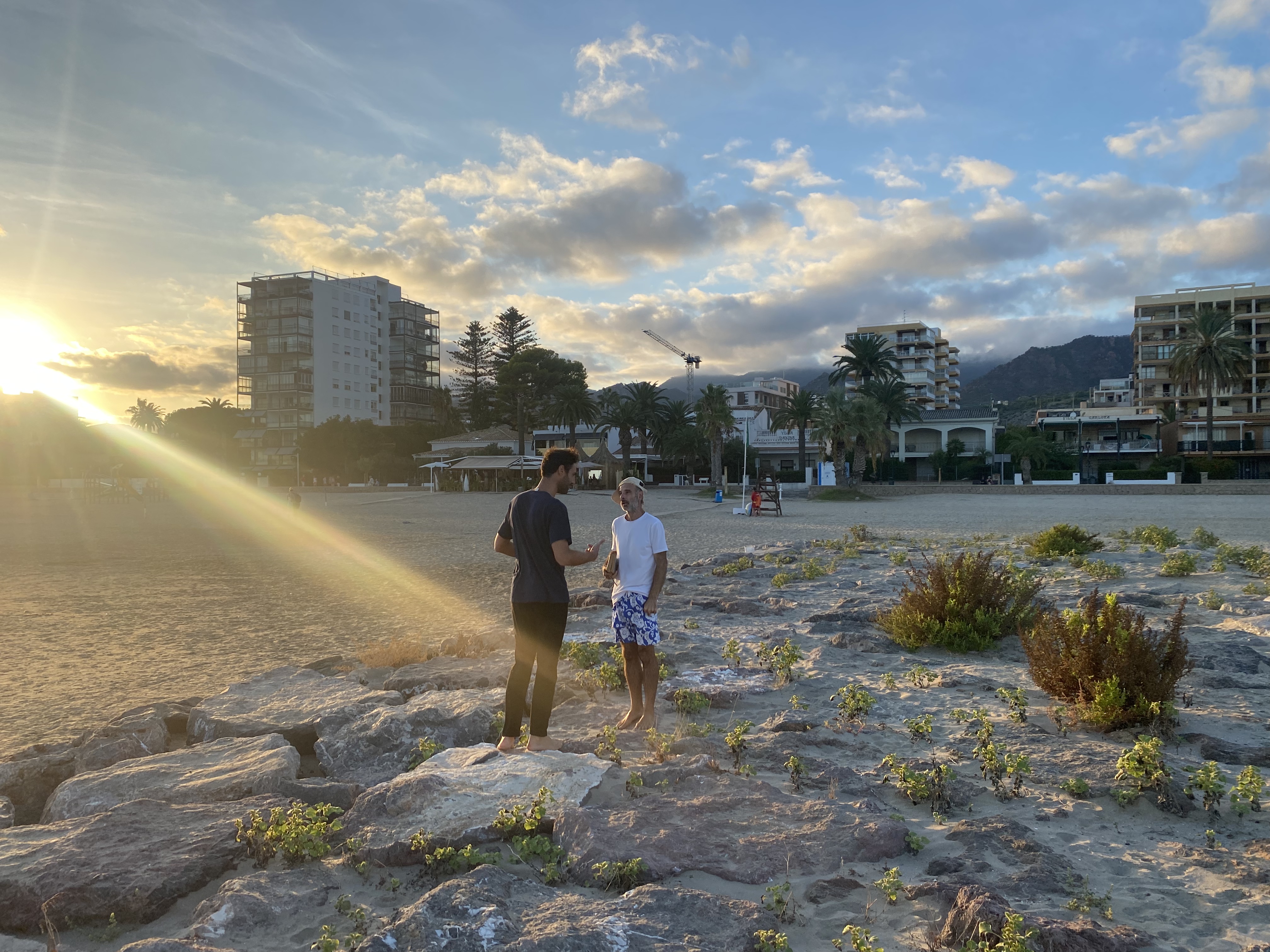On the beach you’ll see people walking across the beach, trying to walk determinedly, athletically, despite bland bikinis and drooping pecs, trying to look like they’re on their way to something important. They walk past you going up the beach and you don’t care to verify whether they’ll walk back down the beach. They could fall down a hole in the sand and rot and you wouldn’t ponder their whereabouts during your next maritime pee.
But there’s one walker whose return I care for, he shines brightest in the day sky – Comet Jordi. Jordi doesn’t look nonchalantly at the horizon when in motion; his gaze is straight into a book, with a determination bordering fury, reading while walking past my beach observatory. He wears a baseball cap, but turns it towards the sun, giving his head a twisted look.
Fitting, as Jordi’s orbit deviates from a few of our own. My astronomical research can report as much. It must have been the fifth time he had become visible to my naked eye when I gathered the required means to send a probe to study this small solar system body.
I first enquired what he was reading. Medieval spanish literature, centering around a monk’s conquest of something. Further enquiries as to the physical mechanics revealed that it is motion that allows Jordi to more effectively absorb the contents of the pages. The walking deepens his concentration, and he maintains this state throughout the length of the beach, which totals a good 3km each way, enabling him to spend hours in deep concentration, making him, for this reason and the ones below, the most dedicated reader in the universe.
Subsequent probes have established trusted communication channels between my observatory and Jordi.
He favours classics of Spanish literature. Human dramas in high language of times past. Speaks intensely about them. Well, he speaks intensely about everything, a permanent frown on his face, arms crossed rather than embracing the void.
Obviously, we get into philosophical conversations. Obviously.
We talk about artistic integrity. He’s a writer, favours dense, astronomically complex language. His nebulous texts have more words and layers of meaning than grains of sand underneath his bare feet. I found his prose, or rather, this comet’s tail, to be impenetrable. Shouldn’t one’s writing be accessible to general readers? “Que se las arreglen” (“let them sort it out”). Comet Jordi doesn’t compromise its trajectory.
We talk about autonomy. Comets travel alone. He once mentioned having one other acquaintance in our town, and that was the extent of his constellation. He stresses the importance of having one’s space (in outer space). Jordi’s sea of serenity is derived from his self-reliance, not from anything that depends on other bodies of the solar system.
We talk about relationships. He mistrusts women, whose gravitational pulls only serve to perturb his trajectory, restricting his movement, bringing him down to earth. Black holes of temptation. Celestial bodies on the hunt for a private satellite, shackles awaiting beneath their surface. He won’t smash into one of them, at least not deliberately, and stepping on a sunbather doesn’t count as a collision.
Comets are a frozen piece of rock. Comets flaunt their freedom. Traversing my beach two light years above or at sea level, as if to inflict a light, vindictive laceration on empty space that left them disillusioned.
I have considered whether Jordi could be merely the product of my potentially defective optical instruments and fanciful stargazing. But other independent observers, one of them a psychiatrist I dated and invited to my observatory, have confirmed his existence. And hinted at my concentricity.
Some comets can take as long as 30 million years to complete one trip around the Sun. It would probably take me less if I woke up early tomorrow. Maybe I catch Jordi. Maybe I’ll be like Jordi. It’s not rocket science.
Twinkle, twinkle, Comet Jordi
I might join you when I’m fourty
